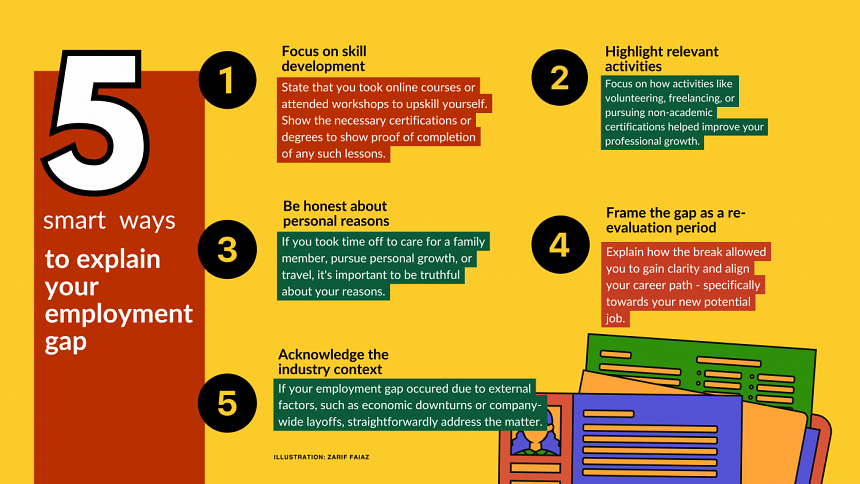Smart ways to explain your employment gap

"How do you explain your time off?" is a common yet uncomfortable question that often rears its unwanted head during job interviews. Employment gaps, regardless of the reason, are difficult to properly dive into during a tense interview, especially if your CV shows long, glaring, unexplained gaps between jobs and/or education.
So, to ensure the next time you aren't stuck when asked this question, here are some smart ways to explain your employment gap to a potential employer.
Focus on skill development
The best explanation for employment gaps is stating that you took online courses or attended workshops to upskill yourself. If that is the case, show the necessary certifications or degrees to show proof of completion of any such lessons. During the interview, talk about how your newly acquired skills will be an asset in the new position, e.g. "During my break, I dedicated time to learning advanced Excel and data analytics - skills crucial for this role."
Highlight relevant activities
Even if you weren't formally employed during the gap, you likely engaged in volunteering, freelancing, or pursuing non-academic certifications. If so, focus on how these activities helped improve your professional growth. A possible explanation could be, for example, "While I wasn't working full-time, I completed a certification in digital marketing and volunteered for a local nonprofit. I learned valuable skills there to help brands gain an online presence."
Be honest about personal reasons
If you took time off to care for a family member, pursue personal growth, or travel, it's important to be truthful about your reasons. However, focus on how the experience contributed to your personal or professional development. You could frame the explanation as such: "During this time, I cared for a family member, which enhanced my time management and multitasking abilities."
Frame the gap as a re-evaluation period
Among other reasons, you could choose to have time off to re-evaluate your career goal and plan your next steps. If so, explain how the break allowed you to gain clarity and align your career path - specifically towards your new potential job. Say something like: "I took some to reassess my career direction. As such, I have realised my passion lies in..." and then add information about the role you are applying to.
Acknowledge the industry context
Sometimes employment gaps occur due to external factors, such as economic downturns, industry shifts, or company-wide layoffs. If that happened to you, straightforwardly address the matter; something along the lines of: "Even though my employment gap occurred during a significant economic downturn, I remained engaged with the industry by attending conferences and staying updated with market trends. Now, I am ready to jump back in as the industry recovers."

 For all latest news, follow The Daily Star's Google News channel.
For all latest news, follow The Daily Star's Google News channel. 








Comments